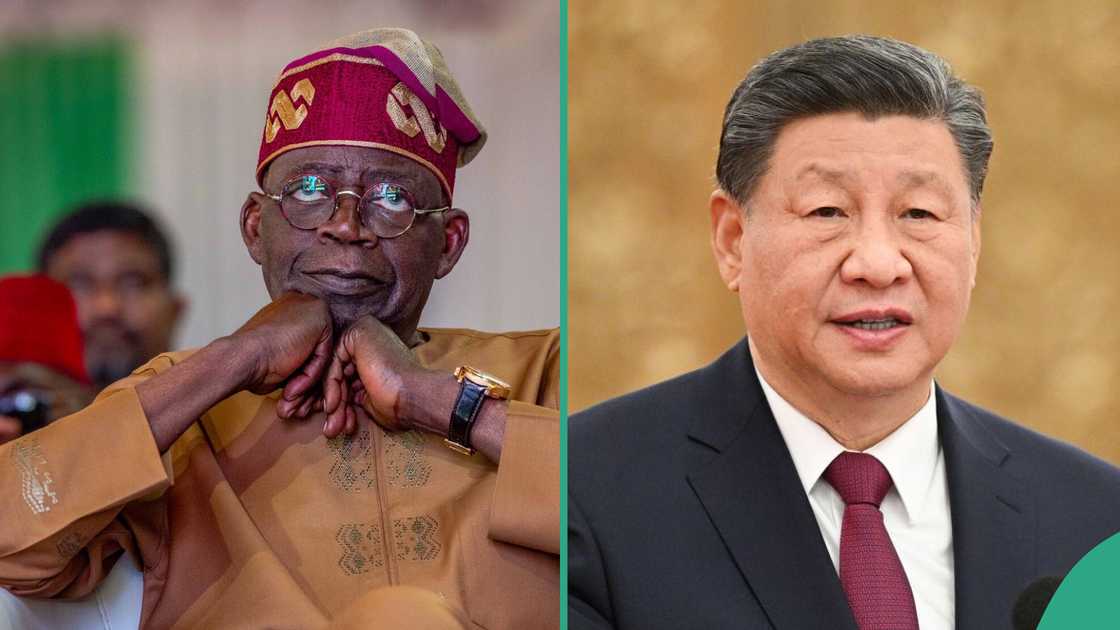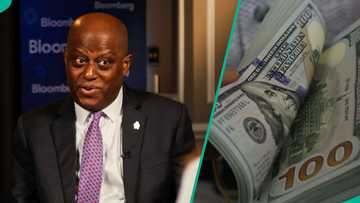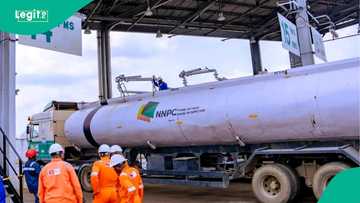China partners Nigeria on economic projects as it plans to remove tariffs on all imports
- China's Ambassador to Nigeria, Yu Dunhai, expressed interest in negotiating an Economic Partnership Agreement with Nigeria to maximise benefits from China's zero-tariff policy
- The announcement follows recent progress in cooperative projects between the two countries, such as the lithium processing plant in Nasarawa State and the revitalisation of the Ajaokuta Steel Plant
- Nigeria is also leveraging zero-tariff access for exports as part of its deeper partnership with China, which is expected to foster greater development and economic cooperation
Don't miss out! Join Legit.ng's Sports News channel on WhatsApp now!
Legit.ng journalist Zainab Iwayemi has 5-year-experience covering the Economy, Technology, and Capital Market.
Yu Dunhai, the Chinese ambassador to Nigeria, stated that his nation is keen to discuss an Economic Partnership Agreement for Common Development with Nigeria. Dunhai claims that this is being done to ensure both nations get the most out of

Source: Getty Images
Nigeria and other African nations will now trade without tariffs, according to a recent announcement by China.
The International Conference (West Africa) Second Post-FOCAC Abuja Forum opened with a speech by Yu Dunhai. The forum focused on implementing the 'Ten Partnership Actions' announced at the 2024 Forum on China-Africa Cooperation Summit in Beijing.
The envoy said:
"China stands ready to negotiate an Economic Partnership Agreement for Common Development with Nigeria as soon as possible, in order to maximise the benefits from China’s zero-tariff policy, share development opportunities, and achieve mutual revitalisation goals."
He added,
"In recent days, we have seen major cooperative projects between China and Nigeria achieve remarkable progress: the lithium processing plant in Nasarawa State commenced operations, the Ajaokuta Steel Plant revitalisation project advances steadily, and the Abuja N16 main road and Greater Water Supply project were completed. These developments underscore our strong economic complementarity and bright prospects for win-win cooperation."
Speaking about the outcomes of the FOCAC Beijing Summit, Dunhai stated that China and Africa have made great strides in carrying out the "Ten Partnership Actions," as evidenced by improved multilateral coordination, expanded practical cooperation, and reinforced strategic mutual trust.
"These developments demonstrate that China-Africa cooperation rests upon a solid foundation, addresses broad shared needs, and possesses immense potential."
The ambassador pointed out that there had already been noticeable advancements in a number of key areas.
"In just nine months after the FOCAC Beijing Summit, China and Africa have achieved significant progress in implementing the 'Ten Partnership Actions,' with strengthened strategic mutual trust, deepened practical cooperation, and enhanced multilateral coordination. These developments demonstrate that China-Africa cooperation rests upon a solid foundation, addresses broad shared needs, and possesses immense potential," he noted.
At the FOCAC implementation meeting in Changsha, Dunhai also emphasised recent policy changes, including China’s lifting of export duties on 53 African nations and its proposal for closer cooperation in developing sectors.
"China and Africa must anchor ourselves firmly on history’s right side, champion the times’ progress, and counter the global uncertainty with the stability and resilience of China-Africa relations."
Tegbe emphasised Nigeria's shift toward a more formalised, development-driven partnership with China in his speech.
"After FOCAC 2024, Nigeria and the People’s Republic of China elevated their partnership to a Comprehensive Strategic Partnership. This marks a period when we are no longer satisfied with maintaining mere relationships, but strive to build robust development partnerships that are based on mutual trust and respect," Tegbe stated.
He outlined Nigeria’s integration into China’s 'Ten Partnership Actions' under FOCAC, pointing out recent benefits such as zero-tariff access for Nigerian exports.
"This action was implemented about a week ago by the Government of China, which removed tariffs on exports from 53 African countries, including Nigeria. Our strategy is to leverage this opportunity in our drive to become a net exporter to China like Brazil," he said.
Tegbe also detailed upcoming infrastructure initiatives. "Nigeria has committed over $8bn in the last 10 years. Additional projects amounting to over $8bn have been identified and prioritised in the FOCAC projects," he stated.
China to remove tariff on imported goods
Legit.ng reported that China has revealed plans to remove tariffs on all imports from African nations with which it has diplomatic ties, marking a significant change in its trade policy.
This move is expected to enhance economic collaboration, positioning China as a leading trade and investment partner for the continent, Channels reported.
The initiative includes Nigeria and 52 other African nations but excludes Eswatini, the only African country that acknowledges Taiwan’s sovereignty.
Source: Legit.ng





